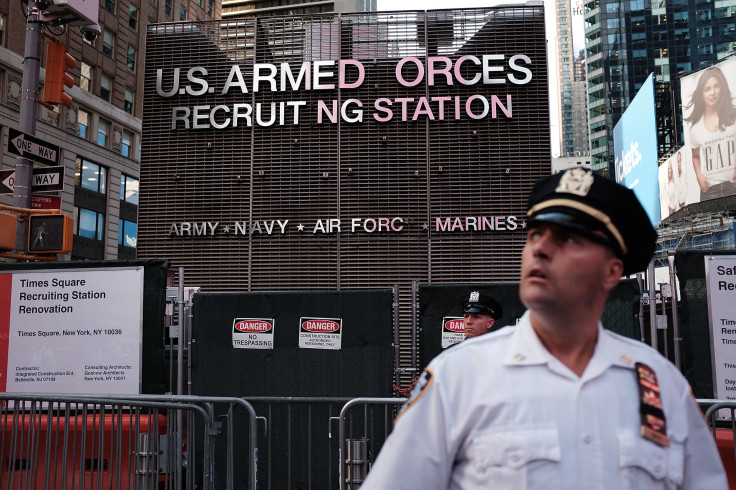Trans Woman Races To Join National Guard Before Ban

In the wake of the Supreme Court's decision to uphold the Trump administration's transgender military ban, one recruit from Columbus, Ohio, is racing against the clock in an effort before the ban takes effect.
Jody Davis, a 48-year-old social worker who served in the military 30 years ago before her transition, decided to re-enlist after coming across a recruiting advertisement for the Ohio Army National Guard a year and a half ago, according to reports.
Since then, Davis has undergone a rigorous training routine in order to meet the requirements for service before the ban goes into effect.
The deadline itself isn't a set one. The Supreme Court upheld the trans military ban on Jan. 22 but was put on hold after a Maryland judge placed an injunction on the policy less than a week later.
"Anybody who’s fit, anybody who can meet the qualifications, they should be able to serve," Davis told the Columbus Dispatch.
According to the National Center for Transgender Equality, approximately 15,000 trans people are currently serving as active-duty personnel, with over 134,000 trans people who are veterans.
While Davis might have the knowledge of a veteran to back her, the stakes for her recruitment now are not only higher but have somewhat different parameters, especially in regards to her status as a trans woman.
In addition to rigorous physical expectations, Davis has also had to secure waivers for anxiety due to a notation made by a counselor before she underwent gender-affirmation surgery. While she has never been diagnosed with an anxiety disorder — which is listed by the Army as a disqualifying medical condition — Davis was forced to attain a sign-off by a medical professional.
Despite obtaining it, the military informed her that she would have to acquire the same waiver from another group, which she is currently waiting on.
If the waiver is granted, then Davis will be able to take the final steps she needs to join up.
"It’s really been very difficult, and you start to wonder if the stops and starts are from Trump trying to ban transgender people," Davis said.
Trump's ban on transgender personnel in the military coincides with a significant increase in recruitment goals for the armed forces. The Associated Press reported in September that the Army failed to reach their recruitment objective for the first time since 2005, falling short of their 76,500 goals by 6,500 recruits.
In a similar fashion, the Army National Guard and the Army National Reserve also failed to meet their 2018 new recruit quotas, with the Guard falling behind by 8,000 out of 343,000 and the Reserve by 9,000 out of 199,500.
© Copyright IBTimes 2024. All rights reserved.





















